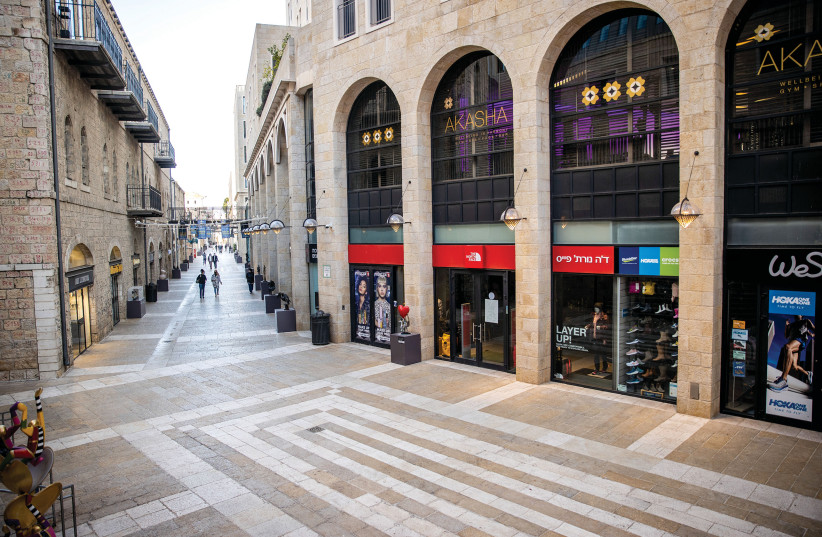Jerusalem, usually the bustling capital of Israel; with its tourists and pilgrims, bars and politicians, has become deserted amid the war in Gaza. Neighborhoods that are often full of life are still at night, no traffic and no children playing in playgrounds. The city has been targeted by Hamas rockets since Saturday.
With schools canceled, children are at home. Many men have been called up to the IDF as its ranks swell by 300,000. This leaves a city that is not only quiet but waiting for what comes next.
In downtown Jerusalem, many shops are closed. Most restaurants and coffee shops for instance were closed on Tuesday. Pinati, the famous hummus place on King George Street was closed. The Aroma across the street was also closed. Although the Pharmacy was open, most other shops were shuttered. The lone place that was open was a place selling Shawarma. However, it was out of most of the salads that usually adorn the ‘laffa’ that the meat is rolled in.

Grim quiet overtakes Jerusalem streets
Around the corner the Iwo delicatessen was open, but the McDonalds was closed. A friend staying at a hotel had said that most of the hotels in the chain he was staying in had closed and he had been sent to a certain hotel because all the others had closed. When the sun began to set, a time when bars and restaurants would usually be open doing brisk business, the streets became quiet. There were no cars. Parking lots that are usually bursting, with drivers arguing over spaces, were empty. Gershon Agron Street, where the historic US consulate building is located, was entirely deserted of traffic. The restaurant across the street was closed and dark. The park, where people sometimes gather, was empty.
In only one neighborhood I drove through were kids visible playing outside and then only because they were sheltered on both sides by buildings and could easily go inside if there was a siren. Streets that are usually jammed with traffic had few cars. The usually aggressive Jerusalem drivers and taxis didn’t use their horns. Everyone seemed a bit on edge. At the First Station, which has become a hub of bars and restaurants and people strolling around the old railway tracks, only one restaurant was open. I sat with a friend for a bite to eat. There were only two other tables with customers.
At local supermarkets, the shelves have become empty of some items, such as bread, batteries, milk, and eggs. With instructions telling people to have their safe rooms stocked for three days, people have grabbed what they can. Many workers do not come to work. A city usually full of tour groups has none. Many flights are canceled. People who had come on holiday or to see relatives, have to scramble to find flights out, often with connections through countries they did not intend.
This is the holy city, the capital city, three days into the war.
